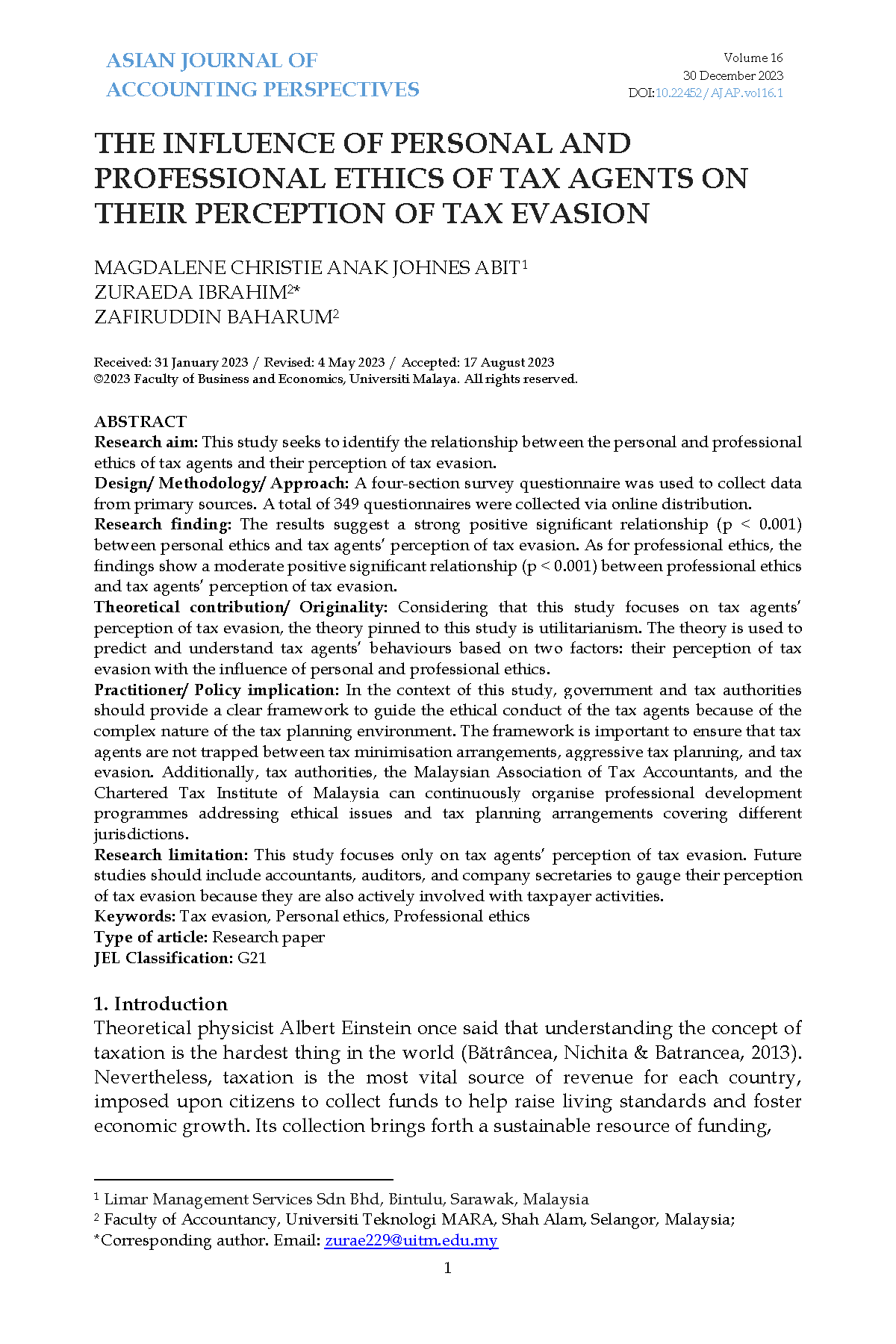The Influence of Personal and Professional Ethics of Tax Agents on Their Perception of Tax Evasion
DOI:
https://doi.org/10.22452/AJAP.vol16.1Keywords:
Tax evasion, Personal ethics, Professional ethicsAbstract
Research aim: This study seeks to identify the relationship between the personal and professional ethics of tax agents and their perception of tax evasion.
Design/ Methodology/ Approach: A four-section survey questionnaire was used to collect data from primary sources. A total of 349 questionnaires were collected via online distribution.
Research finding: The results suggest a strong positive significant relationship (p < 0.001) between personal ethics and tax agents’ perception of tax evasion. As for professional ethics, the findings show a moderate positive significant relationship (p < 0.001) between professional ethics and tax agents’ perception of tax evasion.
Theoretical contribution/ Originality: Considering that this study focuses on tax agents’ perception of tax evasion, the theory pinned to this study is utilitarianism. The theory is used to predict and understand tax agents’ behaviours based on two factors: their perception of tax evasion with the influence of personal and professional ethics.
Practitioner/ Policy implication: In the context of this study, government and tax authorities should provide a clear framework to guide the ethical conduct of the tax agents because of the complex nature of the tax planning environment. The framework is important to ensure that tax agents are not trapped between tax minimisation arrangements, aggressive tax planning, and tax evasion. Additionally, tax authorities, the Malaysian Association of Tax Accountants, and the Chartered Tax Institute of Malaysia can continuously organise professional development programmes addressing ethical issues and tax planning arrangements covering different jurisdictions.
Research limitation: This study focuses only on tax agents’ perception of tax evasion. Future studies should include accountants, auditors, and company secretaries to gauge their perception of tax evasion because they are also actively involved with taxpayer activities.
Downloads

Downloads
Published
How to Cite
Issue
Section
License
LicenseLicense
The Asian Journal of Accounting Perspectives (AJAP) articles are published under a licence equivalent to the Creative Commons Attribution-NonCommercial-NoDerivs License (CC BY-NC-ND). The licence allows users to copy, distribute, and transmit an article as long as the author is attributed. The article is not used for commercial purposes. The work is not modified or adapted in any way.
Copyright
Authors are required to sign the Exclusive License to Publish agreement upon publication in the AJAP. The agreement grants the Publisher (Faculty of Business and Accountancy, Universiti Malaya) to publish and disseminate the articles.
Open Access
Articles published in the AJAP are digital, online, free of charge, and free of most copyright and licensing restrictions.
Article Processing Charge
Articles publish in AJAP is free submission, production and publication charges. However, all accepted articles are required for language editing. The AJAP officially appointed and outsourced proofreader will conduct this process, and the authors will cover the cost. AJAP does not profit from this process and transaction.
